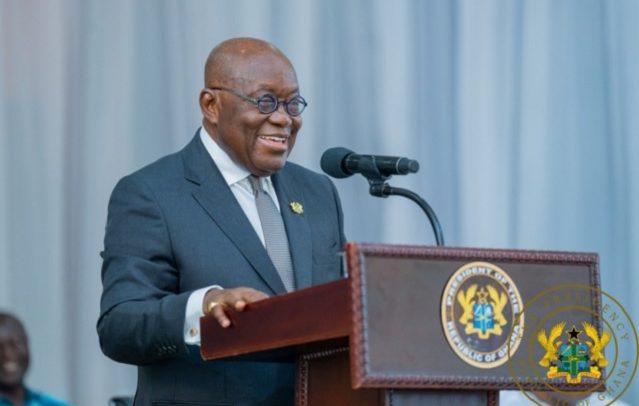Nana Defends Reparation Claims
“Even before these discussions of reparations conclude, the entire continent of Africa deserves a formal apology from the European nations involved in the slave trade for the crimes and damage it has caused to the population, psyche, image, and character of the Africans the world over,”
- Advertisement -
President Akufo-Addo has justified his campaign for compensation for countries affected by the effects of transatlantic slave trade, especially Africans.
For him, the call by Africans and Africans in the diaspora for the payment of reparations by European nations who carried out those acts some 400 years ago is not a plea for alms but a demand for justice.
This was when he addressed the maiden edition of the Accra Reparations Conference (ARC 2023) held in the capital city.
He was of the belief that reparations for Africa and Africans are long overdue, noting that victims of other injustices in human history have rightly received reparations and that, Africans deserve the same for the damage caused by the transatlantic slave trade.
“The call for reparation is not a plea for alms but a valid demand for justice. If reparations can rightly be paid to victims and the descendants of victims of the Holocaust, so can reparations also be paid to the descendants of the victims of the slave trade. It has been four hundred years, and we want to bring closure to this tragedy,” he pointed out.
President Akufo-Addo, who is leading the charge for reparations said, “it began with some 20 slaves from West Africa being forcefully sent in 1619 to the commonwealth of Virginia, in what was to become part of the United States of America. This initial action was the first of 36,000 voyages to and from Africa which resulted in some 20 million Africans from Central and West Africa being sold into slavery in the Americas and the Caribbean.”
He said when the British ended slavery, all the owners of enslaved Africans received reparations to the tune of some 20 million pounds sterling, the equivalent to some 20 billion pounds sterling but enslaved Africans themselves did not receive a penny.
“Likewise, in the United States of America, owners of slaves received $300.00 for every slave they owned, the slaves themselves, received nothing. Take the case of Haiti, which had to pay reparations amounting to 21 billion United States dollars to French slave owners in 1825 for the victory of the Haitian revolution, the first in the Americas and the Caribbean which freed the slaves,” he said.
“It was a payment made under duress that impoverished Haiti throughout the 19th century until today. Native Americans received and continue to receive reparations, Japanese-American families who were incarcerated in internment camps in America during World War II, received reparations. Jewish people, six million of whom perished in the concentration camps in “Hitlerised” Germany, received reparations including homeland grants and support,” he said.
Demand For Apology
He took the opportunity to also call on Africa’s “slave masters” to render a formal apology to the entire continent for carrying out the slave trade “crime”.
“Even before these discussions of reparations conclude, the entire continent of Africa deserves a formal apology from the European nations involved in the slave trade for the crimes and damage it has caused to the population, psyche, image, and character of the Africans the world over,” President Akufo-Addo remarked.
The conference was organised by the Government of Ghana in close collaboration with the African Union (AU) Commission.
In her solidarity statement, Deputy Chairperson of the African Union Commission, Dr. Monique Nsanzabaganwa said the demand for reparations is not an attempt to rewrite history or to continue the cycle of victimization, but a call to recognise the undeniable truth and right the wrongs that have gone unpunished for far too long and continues to thrive presently.
“Reparations are more than merely financial transactions; they are a moral and ethical obligation. They represent our acknowledgment of past wrongs and, more importantly, the resolve to make amends,” Dr. Nsanzabaganwa said.
Source: Charles Takyi-Boadu, Presidential Correspondent
- Advertisement -
- Advertisement -
- Advertisement -


